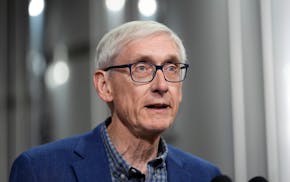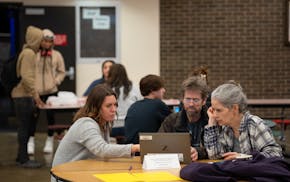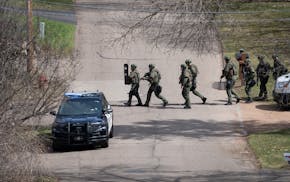In the early '70s, when some women were asserting their independence by burning bras and marching in protests, homemaker Anita Segador Beaton made a quiet but firm declaration of her own: She told her husband that she was leaving him in charge of their two young children for two weeks while she attended a teacher training program in another city.
"It was the first time he'd had us on his own," said her daughter, Jehanne Beaton Zirps. "Her greatest love was her children, but she wanted more. She needed to have her own career, and she decided to become a preschool teacher."
That watershed marked the beginning of a long and influential career in early childhood education. After earning her Ph.D. at the University of Minnesota, Segador Beaton worked as a professor and leader in educating the next generation of teachers. A resident of St. Louis Park, she died March 11 at age 75 after battling kidney disease for many years.
Segador Beaton was fascinated with young children and their development. "She loved all children," said her daughter. "Not in a cloying or precious way. She loved them with deep respect and reverence — the whole complicated, changing person. To watch a kid learn how to read was a miracle."
Growing up in Sunnyvale, Calif., the youngest of four sisters in a big, extended-family household, Segador Beaton wasn't expected to pursue higher education and had to push to attend nearby San Jose State University.
"She was the only one of her generation of cousins and sisters to attend college," said her daughter. "She was really determined."
That experience honed her commitment to education opportunities for all children, said friend and colleague Julie Landsman.
"She was really concerned about gender issues. She had to argue and prove herself to go to college. She encouraged the possibilities for young women."
During her career, Segador Beaton served as the director of the Montessori Lab School, and as a professor at the College of St. Catherine and Hamline University. She also helped develop the Urban Teacher Program at Metro State University.
"She was a real pioneer in early-childhood education and early-childhood teacher education," said Paul Spies, a professor at Metro State. "She was a strong advocate for how all children deserve excellent teachers and deserve to have their culture affirmed."
Segador Beaton also was an early advocate of "making sure kids learned through play, and had a rich experience with teachers, not just a babysitting experience," said Spies.
Landsman admired her deep well of knowledge. "She knew so much about early childhood. She had research at her fingertips."
And despite her fierce drive, she was a relaxing presence, with a whimsical sense of humor and an inclusive spirit. "She had a totally calm demeanor," said Landsman. "Everyone — white, African-American, Latina — felt comfortable with her."
Segador Beaton remained devoted to her field during three years of kidney dialysis, and a transplant. "She loved being a teacher, and she believed in the work," said her daughter.
After Segador Beaton retired from full-time teaching in 2007, she continued to teach part-time at Metro State, as well as to volunteer at multiple schools, and spend time with her grandchildren and dogs. "She always had a dog or two. Little terriers were her favorite," said her daughter.
In addition to her daughter, Segador Beaton is survived by her son, Andrew Beaton, and four grandchildren. Services have been held.

Wisconsin Republicans ignore governor's call to spend $125M to combat 'forever chemicals'

FAFSA completions in Minnesota drop amid flawed efforts to update college financial aid form

Man killed in Minnetonka by law enforcement started gun battle with deputies, BCA says

